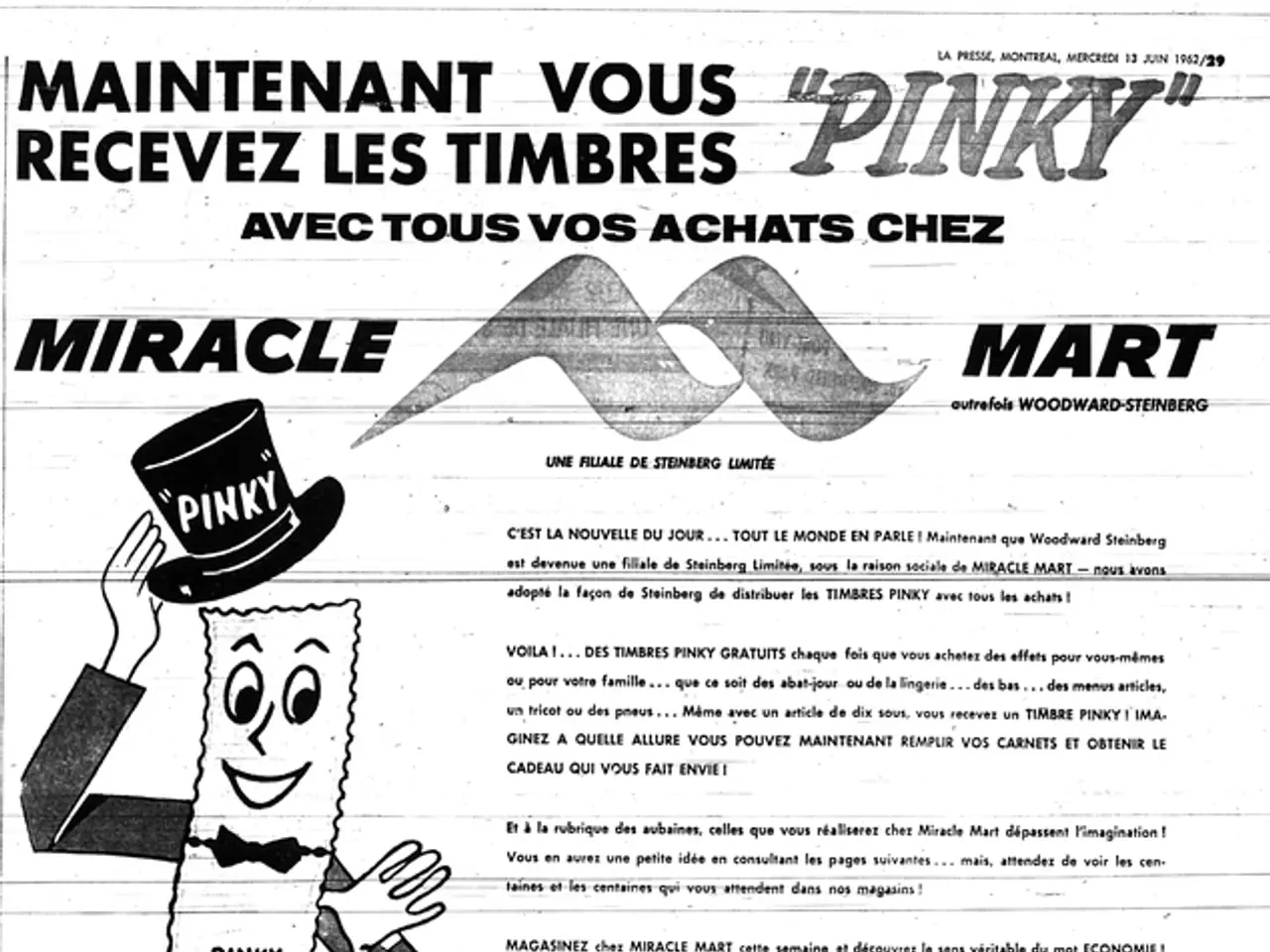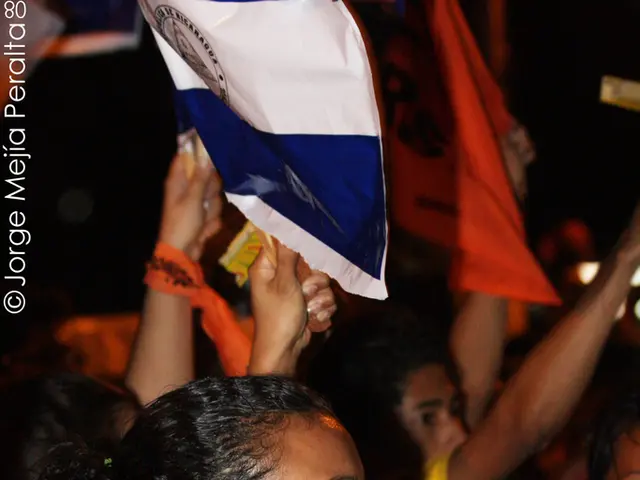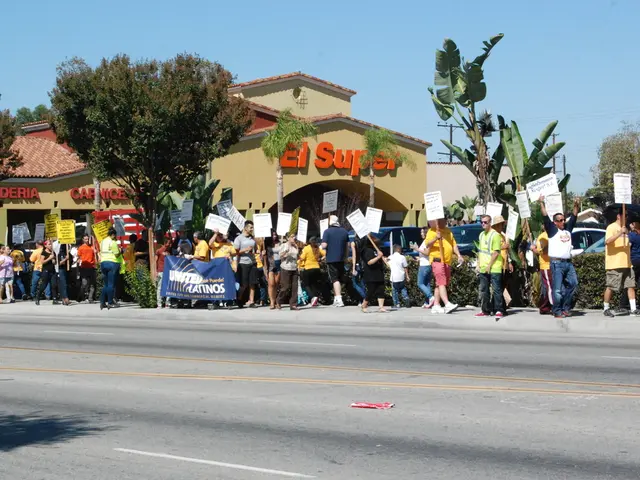Federal authorities at the Department of Homeland Security (DHS) have embraced a more inventive approach in their social media posts, which has sparked discontent among certain artists and businesses.
Unauthorized Use of Copyrighted Material Sparks Controversy for DHS
The United States Department of Homeland Security (DHS) has found itself in a contentious situation after multiple artists and companies have complained about the unauthorized use of their music, artwork, and other creative content on social media.
The controversy began when DHS started posting hundreds of videos and images, some featuring popular music, as part of their recruitment and immigration enforcement messaging. This practice has been criticized for appropriating creative content without clearance.
Notable cases include the use of Black Rebel Motorcycle Club's version of the traditional folk song "God's Gonna Cut You Down" and British singer Jess Glynne's music in a video featuring migrants being loaded onto deportation flights. The estates of rock musician Tom Petty and folk artist Woody Guthrie have also objected to the use of their songs without permission.
In response to these complaints, at least two videos had their music removed. An ICE video featuring JAY-Z’s 2003 song “Public Service Announcement” was disabled following a copyright claim. The band Black Rebel Motorcycle Club also posted a statement criticizing the use of their song.
DHS officials have not publicly acknowledged these copyright infringement complaints in detail. Assistant Secretary Tricia McLaughlin stated that the department is bypassing the mainstream media to give Americans facts and celebrate the homeland.
The controversy has also taken on political tones, with some artists linking the unauthorized use of their work to broader issues of government overreach and disrespect for legal and moral norms. The Kinkade Family Foundation, for example, strongly condemned the sentiment expressed in a post and the deplorable actions that DHS continues to carry out.
As of August 2025, this situation remains contentious, with growing public pushback from artists and brands against DHS’s unauthorized use of copyrighted music and art in social media posts. No reported large-scale legal settlements or lawsuits have been published, but the controversy has led to takedown actions.
In one instance, the department posted an image of the late artist Thomas Kinkade's painting "Morning Pledge," which depicts an idyllic small-town American street at sunrise, with the caption "Protect the Homeland." However, the Kinkade Family Foundation requested that the DHS remove the post and is consulting with their counsel on their options.
Attempting to play the audio on a June 14 post featuring a humorous video using the "audios" popular on TikTok and Reels results in a "This song is currently unavailable" message. Similarly, a video featuring migrants being loaded onto deportation flights now shows as "audio unavailable."
Jet2, the British low-cost air carrier whose ad was used in a video, issued a statement on August 13 stating that the department's use of their ad is not endorsed and they are disappointed.
This situation underscores the importance of obtaining a license in every instance of using copyrighted material, as suggested by Cynthia Katz, a partner at Fox Rothschild and expert in copyright law. Taking the music down is the common practice in cases like these, as subsequent uses open them to further liability. The department's use of music makes it more difficult to argue for fair use, according to Katz.
In summary, the situation remains contentious, with growing public pushback from artists and brands against DHS’s unauthorized use of copyrighted music and art in social media posts, some of which have resulted in takedown actions but no reported large-scale legal settlements or lawsuits published as of late August 2025.
- The debate over the use of copyrighted material has extended beyond the realm of music, with education and international communities expressing concern as well.
- The ongoing controversy about the Department of Homeland Security (DHS) utilizing creative content without permission has sparked a heated discussion on social-media platforms about the ethics of entertainment and pop-culture figures, particularly celebrities, endorsements of political agendas.
- The controversy has raised questions about DHS's position on certain social issues, as many believe the unauthorized use of artistic content reflects a disregard for intellectual property rights and a lack of understanding of popular culture.
- As the legal landscape continues to evolve, it is essential for government agencies to be aware of the impact of late-breaking trends in entertainment, such as viral videos on TikTok and Reels, and the need to obtain licenses or secure permissions before using copyrighted material.
- This international issue has highlighted the intersection of politics, education, and entertainment, as public opinions about DHS's handling of copyright infringement and its broader ethical implications continue to shape the discourse on social media.






